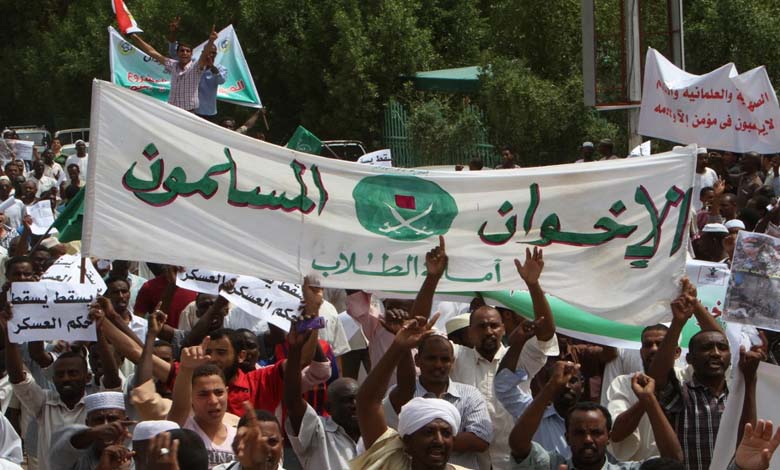The Missionary Officers Project: How Did the Muslim Brotherhood Take Control of Sudan’s Institutions?

The legal advisor to the Rapid Support Forces and a member of the negotiation delegation, Mohammed Mokhtar Al-Nour, revealed that “the Islamic Movement’s coup on June 30, 1989, marked the beginning of a systematic domination project known as the Empowerment Project or the Missionary Officers Project.”
-
Efforts to Bridge the Divide within the Islamic Movement… The Sudanese Muslim Brotherhood on Hot Coals
-
Sudanese Army rejects ceasefire despite Ramadan, reflects Islamic Movement’s Stance
Al-Nour explained that “this project aimed to take control of all state institutions, including the army, by gradually introducing elements loyal to the Islamic Movement until their members constituted more than 90% of the batches at the Military Academy.”
Al-Nour added that “the project extended beyond the military institution to include the civil service and other security institutions, with admission conditions requiring endorsements from the movement’s leaders.” He noted that “prominent military officers such as Omar Al-Bashir and Abdel Fattah Al-Burhan were sleeper cells of the Islamic Movement before publicly declaring their full allegiance to it.”
-
Islamic Movement Fueling Sudan’s War
-
The Missionary Officers Project: How Did the Muslim Brotherhood Take Control of Sudan’s Institutions?
The legal advisor stated that “the Islamic Movement’s 1989 coup was a turning point in Sudan’s history, marking the start of the implementation of the Empowerment Project, also known as the Missionary Officers Project.”
Al-Nour elaborated that this project sought to introduce members and youth affiliated with the Islamic Movement into all state institutions, including security and civil institutions.
-
A Taqaddum Official Discusses Muslim Brotherhood Efforts, Backed by the Military, to Divide Sudan
-
One-Third of Sudanese Farewell from Exile “The Most Tragic Year”
He added that “the initial steps of the project involved recruiting the early batches in the army by selecting individuals affiliated with the Islamic Movement. These individuals were gradually integrated into the military institution, with their representation among Military Academy admissions reaching about 90%. They underwent special training and preparation to play their roles within the military institution.”
Al-Nour pointed out that “control was not limited to the army but extended to appointing administrative officers in the civil service, strengthening the Islamic Movement’s effective control within the military.”
-
Sudan in 2024: A War That Reshapes the Map of Control and Influence
-
Sudanese Demand an End to the Violations of the Muslim Brotherhood Brigades
He clarified that “the Islamic Movement already had members in the army, including prominent figures such as former President Omar Al-Bashir, Abdel Fattah Al-Burhan, Yasser Al-Atta, Shams Al-Din Kabashi, and Omar Zain Al-Abidin.” He described these individuals as sleeper cells who became publicly active after assuming power, declaring full allegiance to the movement and working openly.
The advisor added that “these elements established associations within the military institution, such as the Quran Association, and created jihadist units within the army, including the Popular Defense Force, composed of elements from the Islamic Movement. The original Islamists and Mujahideen of the organization remained deeply entrenched in the military.”
-
Muslim Brotherhood Training Tens of Thousands of Youth for Combat… What Awaits Sudan?
-
How the Muslim Brotherhood Reshaped the Sudanese Army
In conclusion, Al-Nour stated that “the Islamic Movement did not stop at controlling the army but transformed the military institution into a tool serving its own interests. This approach also extended to other security institutions such as the police and intelligence services, where the percentage of movement-affiliated personnel reached 100%. This institutional erosion occurred at the expense of Sudan’s state and national interests.”












